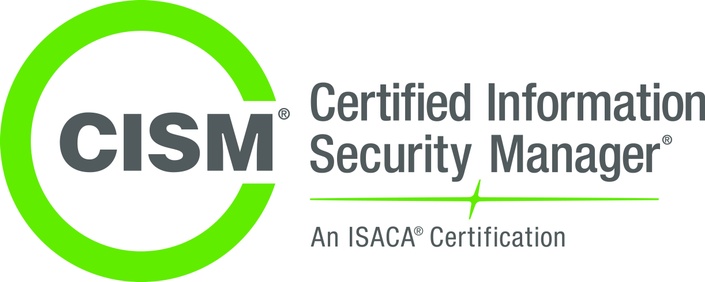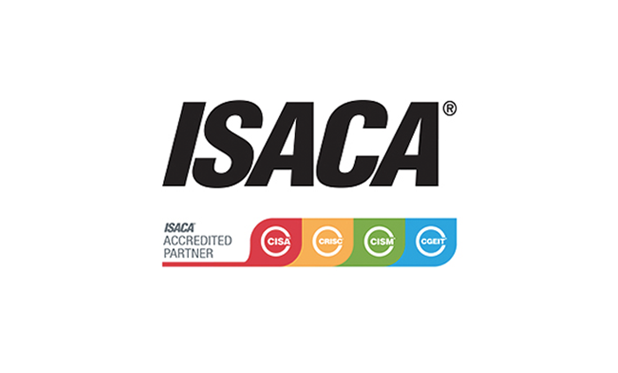Certified Information Security Manager Requirements
- Key Takeaways:
- How to Become a Certified Information Security Manager Requirements: A Step-by-Step Guide?
- How to Become a Certified Information Security Manager Requirements: A Step-by-Step Guide?
- Exploring the Benefits of Holding a Certified Information Security Manager Requirements
- The Role of a Certified Information Security Manager in Organizations
- How to Develop the Skills Necessary to Become a Certified Information Security Manager Requirements?
- Examining the Different Certified Information Security Manager Requirements
- Conclusion
Key Takeaways:
- CISM: Merging infosec with business.
- Exam: 200 MCQs, $760.
- Training: Options from $895.
- Benefits: Lucrative salaries, job growth.
Introduction:
Explore CISM’s pivotal role in cybersecurity management—from prerequisites to potential career elevations.
“CISM Certification: Requirements, Prerequisites, and Cost”
The CISM certification signifies a deep understanding of integrating security with organizational business goals. Certified Information Security Manager (CISM) is aimed at advanced IT professionals demonstrating the ability to develop and manage enterprise-level infosec programs. Offered by ISACA, it focuses on four core areas:
- Information security management
- Information risk management and compliance
- Information security program development and management
- Information security incident management
For those interested in cybersecurity decision-making and leadership roles, pursuing CISM is valuable.
“CISM vs. CISSP”
CISM and CISSP, both advanced cybersecurity certifications, differ in focus. CISM emphasizes understanding information security from a business perspective, catering to managers. CISSP showcases deep technical knowledge across various security domains. Often pursued together, CISM can indicate a career shift toward management.
“CISM Requirements and Prerequisites”
To obtain CISM certification, one must pass the CISM exam and demonstrate relevant work experience. This includes five years in information security within the last decade, with three years in management across the specified core areas. Some lower-level certs or teaching experience may substitute for part of the experience requirement. Notably, the exam can be taken before fulfilling the full experience requirement.
“CISM Exam”
The CISM exam, available online or in person, covers the four core areas and consists of 200 multiple-choice questions. A passing score is 450, and the exam can be retaken up to four times a year. Understanding the material is crucial, as questions often present scenarios requiring thoughtful consideration.
“CISM Exam Cost”
The CISM exam costs $760, with a discounted rate of $575 for ISACA members. ISACA membership, priced at $130 per year, offers additional benefits beyond the exam discount.
“CISM Study Guide”
Various official and unofficial study guides are available, including ISACA’s QAE database and an official review manual priced at $135. Additional options, like the CISM All-in-One Exam Guide, offer alternatives at different price points.
“CISM Training”
Structured training options include ISACA’s CISM Online Review Course, costing $895. Various online courses from different vendors are available, catering to different budgets.
“CISM Certification and CISM Certification Cost”
After passing the exam and meeting experience requirements, obtaining the CISM certification involves a one-time $50 application processing fee. Maintaining the certification requires 120 CPE hours over a three-year cycle, with an annual maintenance fee of $85 ($45 for ISACA members).
“CISM: Jobs and Salary Benefits”
CISM opens doors to management positions, with titles like information security manager and CIO. A Certification Magazine survey revealed CISM holders have the highest average salary at $127,063, with 48% reporting a raise within a year of certification. Adherence to the CISM code of professional ethics is expected, along with annual maintenance fees.
What Are The Certified Information Security Manager Requirements?
The Certified Information Security Manager Requirements (CISM) is an industry-recognized certification designed to recognize individuals who possess the knowledge and experience necessary to effectively manage an organization’s information security program. Those who successfully achieve CISM certification demonstrate a comprehensive understanding of information security governance, risk management, incident response, and compliance with regulations and standards.
To become certified, individuals must meet certain requirements, such as passing a written exam and having a minimum of five years of information security experience. In this article, we will discuss the specific requirements for becoming a CISM-certified professional.
How to Become a Certified Information Security Manager Requirements: A Step-by-Step Guide?
Becoming a Certified Information Security Manager Requirements (CISM) can be a daunting task. You must have a solid understanding of security principles, the ability to manage a team effectively, and the necessary experience to prove your skills. But don’t worry, with the right approach, you can become certified and begin your journey to a rewarding career in information security. The first step is to make sure you meet the qualifications for the CISM certification.
To be eligible, you must have a minimum of five years of security-related experience, with at least three of those years managing, designing, or assessing information security programs. You must also have a bachelor’s degree or higher, as well as a professional certification in information security. Once you have confirmed that you meet the qualifications, it’s time to start studying for the exam. The Certified Information Security Manager Requirements CISM exam consists of four domains: information security governance, risk management, program development and management, and incident management.

To prepare for the exam, you will need to become familiar with the topics covered in each domain. You can find study materials online, or you may want to consider enrolling in an accredited CISM training program. Once you feel confident in your knowledge, you can register to take the CISM exam. You will need to pay the exam fee and submit your documents for review. Once your application is approved, you will receive authorization to test (ATT) and you can schedule your exam.
The CISM exam is a challenging test but, with the right preparation and dedication, you can pass it and become certified. Once you have received your certification, you will have the credentials you need to pursue a successful career in the field of information security. Becoming a certified information security manager is an achievable goal, but it requires dedication and hard work. With the right preparation and commitment, you can become certified and make your mark in the world of information security.
Exploring the Benefits of Holding a Certified Information Security Manager Requirements
As organizations increasingly rely on technology to handle sensitive data, the importance of protecting that data has become a major concern. One way to ensure that data is kept secure is to have a Certified Information Security Manager Requirements (CISM) on staff. But what exactly are the benefits of holding a CISM certification? A CISM certification is a globally recognized certification that is designed to validate an individual’s knowledge and experience in information security management.
Those who receive a CISM certification have demonstrated their expertise in areas such as risk management, security architecture, and business continuity. As a result, those with a CISM certification are in high demand, especially for positions that require knowledge of information security.
While having a CISM certification may give an individual an edge in the job market, there are other benefits to consider. For example, having the certification may help an individual better understand the complexities of information security, allowing them to be more effective in their role.
Additionally, the fact that the certification is globally recognized helps to ensure that employers know an individual is qualified for the job. Finally, having a CISM certification may also provide an individual with access to a wide network of other CISM-certified professionals. These networks provide individuals with an opportunity to learn from others and gain valuable insight into the field of information security.
At the same time, some are skeptical of the value of holding a CISM certification. For example, some argue that the certification is too broad and that it doesn’t necessarily guarantee an individual is knowledgeable about the latest trends and technologies in information security. Additionally, there are concerns that the certification may be too expensive for some individuals to obtain, making it inaccessible to many.
Ultimately, whether or not holding a CISM certification is beneficial will depend on the individual and the situation. For some, it may provide a valuable opportunity to demonstrate their knowledge and expertise in the field. For others, it may not be worth the time and money required to obtain the certification.
The Role of a Certified Information Security Manager in Organizations
As organizations become more and more reliant on technology, their security needs become increasingly complex. The role of a Certified Information Security Manager Requirements (CISM) is becoming increasingly important in organizations, as they are tasked with ensuring that their organizations’ systems and data are secure and compliant with industry standards. CISM plays a vital role in an organization’s security strategy.
They are responsible for implementing and managing the organization’s security policies and procedures, and for monitoring the security of their systems and data. They are also responsible for developing comprehensive risk management plans and for providing guidance and support to other members of the organization.
In addition, the CISM is responsible for assessing the organization’s current security posture and for identifying any potential security vulnerabilities or weaknesses. They must also stay up-to-date with the latest security trends and technologies, and provide invaluable advice to the organization’s leadership on how to best secure their systems and data.
The CISM is also tasked with providing training and guidance for other members of the organization on how to implement and maintain a secure environment. This includes teaching employees about the importance of security, as well as providing them with the tools and techniques necessary for protecting the organization’s data. Despite the critical role that CISM plays in an organization’s security strategy, some people are skeptical of their ability to adequately protect the organization’s systems and data.
While there is no arguing that CISM is highly qualified, the truth is that no one person can guarantee the security of an entire organization. In today’s highly connected world, it takes a team of dedicated professionals to ensure that an organization’s security posture is up-to-date and secure. In the end, the role of CISM is invaluable in an organization’s security strategy.
While there is no denying that they have the knowledge and experience necessary to protect the organization’s systems and data, it is important to remember that they cannot do it alone. It is ultimately up to the organization’s leadership to ensure that their security posture is adequate and up to date and that they have the right team of professionals in place to monitor and protect their systems and data.
How to Develop the Skills Necessary to Become a Certified Information Security Manager Requirements?
Do you have what it takes to become a Certified Information Security Manager Requirements? It’s a challenging but rewarding career path that requires a unique skill set and a deep understanding of the information security world. The first step in becoming a Certified Information Security Manager is to develop the skills necessary to be successful. This includes mastering the basics of information security, such as understanding the different types of threats, assessing risk, and implementing security measures.
You should also become familiar with the various laws and regulations governing information security, such as the Health Insurance Portability and Accountability Act (HIPAA) and the Gramm-Leach-Bliley Act (GLBA). In addition to the technical skills, you should also develop the soft skills that are essential for managing information security teams. This includes the ability to communicate effectively, problem-solve, and lead a team. You should also be knowledgeable of project management best practices, such as time management and budgeting. Once you have the required skills, you should look into taking a certification exam.
The Certified Information Security Manager Requirements (CISM) is a certification offered by the Information Systems Audit and Control Association (ISACA). It is an internationally recognized credential that demonstrates your knowledge and mastery of the information security field. When preparing for the exam, you should review the CISM Exam Candidate Handbook and use the exam objectives as a guide.
You should also take practice tests and review as many study materials as possible. It’s also a good idea to join a community of other CISM candidates to exchange tips and advice. Becoming a Certified Information Security Manager is no small feat. It requires dedication and hard work, but the rewards are great. With the proper skills and preparation, you can make your mark in the information security world.
Examining the Different Certified Information Security Manager Requirements
When considering the various Certified Information Security Manager Requirements (CISM) requirements, it’s important to look at the nuances of each one. While there are some similarities in the requirements between certifications, they are not all the same. For example, some certifications require that applicants have a minimum of five years of experience in the field of information security, while others may require seven years or more.
Similarly, some require a bachelor’s degree in a related field, while others may require a master’s degree. The type of experience an applicant has in the field may also vary from one certification to another. Some certifications may require applicants to have experience in developing and implementing security policies, while others may look for more specific experience in the areas of risk management, business continuity, and security architecture.
Additionally, some certifications may also require applicants to have a certain level of knowledge in security frameworks, such as ISO/IEC 27001 or COBIT. Furthermore, some certifications may require additional courses or examinations related to the field of information security. It’s important to remember that the requirements may vary from one certification to another, so it’s essential to read the specifics of each one carefully before making a decision. In this way, applicants can make sure they are getting the certification that best fits their professional needs and goals.
Conclusion
The Certified Information Security Manager Requirements (CISM) is a valuable professional designation that recognizes expertise in the field of information security management. To obtain the certification, the candidate must demonstrate a high level of expertise in the areas of security management, risk management, incident management, and security governance. The certification requires applicants to have five years of professional experience in information security and to pass a rigorous exam. With the CISM certification, professionals are well-equipped to establish a secure and compliant environment for their organizations and to develop policies and procedures that will protect their networks and systems from malicious attacks.

